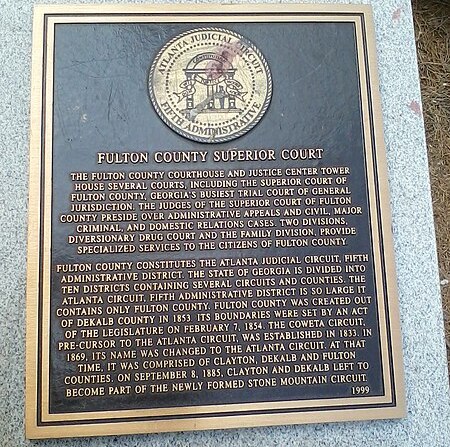Fulton County Superior Court Judge Scott McAfee on Monday granted District Attorney Fani Willis’ request to restrict identifying jurors in the Georgia 2020 election interference case.
In a two-page order, McAfee imposed strict limits regarding the identities of jurors or prospective jurors in any trial in the case, in which former President Trump and 18 co-defendants were indicted on racketeering and other charges related to attempts to overturn Georgia’s 2020 election.
McAfee’s order restricts using photographic or electronic equipment without a judge’s consent. The order further prohibits court artists from drawing in an identifiable manner or otherwise recording images, statements or conversations of jurors or prospective jurors.
Instead, according to McAfee’s order, jurors will only be identified by their numbers in court filings while the trial is pending. Any information that could potentially reveal their identities, like names, addresses, telephone numbers or employment information, are also prohibited.
Among the exceptions from Judge McAfee, who ruled on August 31 that all court proceedings in the case will be televised, will be the recording of audio of the jury foreperson’s announcement of a verdict or questions to the judge.
Earlier this month Willis had asked McAfee to take steps to protect jurors from being doxed, which is the posting of personal information about someone in order to harass, threaten, shame or exact some sort of revenge. Her request came after doxing instances occurred among the 23 grand jurors who handed up the indictment in the case.
As is standard in the state of Georgia, the indictment included the names of the grand jurors, in part because it provides defendants the chance to challenge the grand jury’s composition.
Just hours after McAfee issued his order in Georgia, Trump’s legal team filed a request for U.S. District Judge Tanya Chutkan to reject Special Counsel Jack Smith’s motion to place limits on what the former President and his lawyers can say about witnesses and others in the federal 2020 election interference case.


